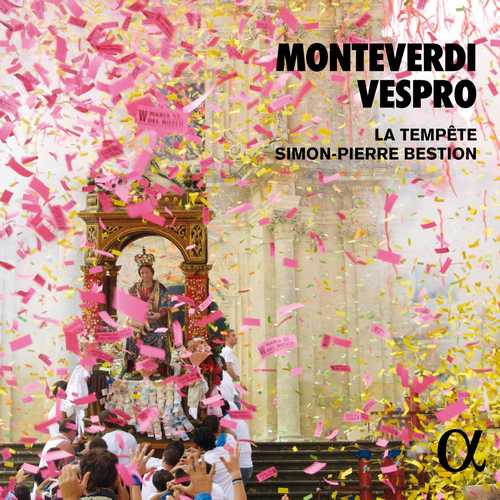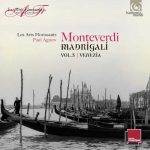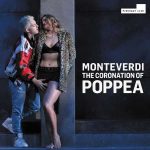
Composer: Claudio Monteverdi
Orchestra: La Tempête
Conductor: Simon-Pierre Bestion
Format: FLAC (tracks)
Label: Alpha
Release: 2019
Size: 1.43 GB
Recovery: +3%
Scan: yes
Vespro della beata vergine, SV 206
01. Faux-bourdon Domine ad adjuvandum me
02. Toccata et Domine ad adjuvandum me
03. Antienne Gaudeamus omnes
04. Faux-bourdon Dixit Dominus
05. Dixit Dominus
06. Nigra sum
07. Antienne Diffusa est gratia
08. Faux-bourdon Laudate pueri
09. Laudate pueri
10. Pulchra es
11. Antienne Tota pulchra es
12. Faux-bourdon Laetatus sum
13. Laetatus sum
14. Duo Seraphim
15. Antienne Recordare Virgo Mater
16. Faux-bourdon Nisi Dominus
17. Nisi Dominus
18. Ricercar sopra Sancta Maria (Frescobaldi)
19. Audi caelum
20. Antienne Felix es sacra Virgo
21. Faux-bourdon Lauda Jerusalem
22. Lauda Jerusalem
23. Antienne Assumpta est Maria
24. Sonata sopra Sancta Maria
25. Ave maris stella
26. Magnificat
27. Magnificat ‘Et exultavit’
28. Magnificat ‘Quia respexit’
29. Magnificat ‘Quia fecit’
30. Magnificat ‘Et misericordia’
31. Magnificat ‘Fecit potentiam’
32. Magnificat ‘Deposuit’
33. Magnificat ‘Esurientes’
34. Magnificat ‘Suscepit Israel’
35. Magnificat ‘Sicut locutus’
36. Magnificat ‘Gloria Patri’
37. Magnificat ‘Sicut erat’
Here are the Monteverdi Vespers as you’ve never heard them before! ‘I see these Vespers as a great incantatory ritual that connects the sacred with the pagan, the intimate with the collective. I experienced this powerful sensation many times in my childhood, in the choir of an abbey: the intense, warm light of a late summer day, filtering in from the west and reflected all the way up to the choir’, says Simon-Pierre Bestion. The founder of La Tempête has made very personal choices for this recording, notably concerning the composition of the orchestra, which he has enriched with instruments from different cultures, including the serpent and the chitarrone. He has added ‘fauxbourdons’, simple improvised chants deriving from folk tradition. The colours of the voices in these Vespers are also very unusual: Bestion follows in the tradition of oral polyphony as it still exists in Corsica, Sardinia and Georgia.



